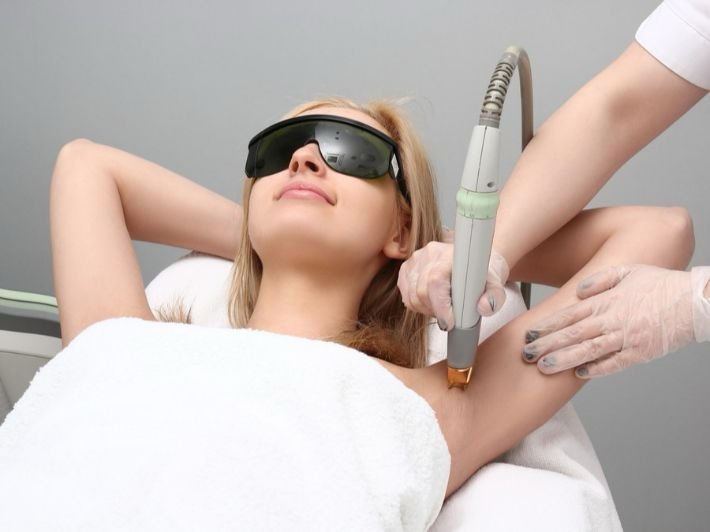Summer is a season of sunshine, outdoor fun, and vacations. However, the intense heat, UV rays, and increased humidity can take a toll on your skin. Maintaining healthy, glowing skin during the summer requires adjusting your skincare routine to protect against damage, prevent dehydration, and keep that summer glow.
In this comprehensive guide, we’ll explore the best ways to maintain your skin’s health in the summer, focusing on essential practices to help you look and feel your best, no matter how hot it gets.
Why is Summer Skincare Important?
During the summer months, the skin is exposed to more direct sunlight and higher temperatures, which can lead to several issues:
• UV damage: The sun’s harmful ultraviolet (UV) rays can lead to sunburn, premature aging (wrinkles, fine lines), and even skin cancer if not properly protected.
• Increased sweat and oil production: The heat causes the body to sweat more, and for some, it can increase oil production, leading to clogged pores, breakouts, and irritation.
• Dehydration: Prolonged exposure to the sun can dehydrate the skin, leading to dryness, dullness, and increased sensitivity.
To keep your skin looking fresh and healthy, it’s essential to adopt a specific summer skincare routine that addresses these challenges.
Top Tips for Maintaining Healthy Skin in Summer

1. Never Skip Sunscreen
Sunscreen is the cornerstone of any summer skincare routine. Protecting your skin from harmful UV rays is crucial for preventing sunburn, premature aging, and skin cancer.
• Choose broad-spectrum sunscreen: Make sure your sunscreen protects against both UVA and UVB rays, with an SPF of at least 30.
• Apply generously: Use at least a shot glass full of sunscreen to cover exposed areas of your body, and reapply every two hours, especially after swimming or sweating.
• Don’t forget neglected areas: The ears, neck, feet, and hands are often forgotten when applying sunscreen but are just as susceptible to sun damage.
2. Hydrate Inside and Out
Hydration is key to keeping your skin plump, radiant, and healthy, especially in the summer when you lose more moisture due to heat and sweat.
• Drink plenty of water: Aim to drink at least 8 glasses of water per day. Hydration from the inside out will help maintain your skin’s moisture levels.
• Use a hydrating moisturizer: Even if you have oily skin, using a lightweight, non-comedogenic moisturizer can prevent dehydration and maintain the skin’s barrier.
• Incorporate hydrating serums: Look for serums with hyaluronic acid, which is known for its powerful hydration properties, to lock in moisture.
3. Cleanse Regularly
Increased sweat and oil production during summer can clog pores and lead to breakouts, making proper cleansing even more important.
• Use a gentle cleanser: Opt for a gentle, sulfate-free cleanser that can effectively remove sweat, oil, and sunscreen without stripping your skin of its natural moisture.
• Double cleanse in the evening: After a long day in the sun, it’s essential to thoroughly cleanse your face, removing sunscreen, dirt, and pollutants. Double cleansing can be particularly effective: start with an oil-based cleanser to dissolve sunscreen and makeup, followed by a water-based cleanser.
4. Exfoliate for a Fresh Glow
Exfoliating helps remove dead skin cells that can accumulate on the skin’s surface, leading to dullness, clogged pores, and uneven texture.
• Exfoliate 1-2 times per week: Choose a gentle exfoliant, such as a chemical exfoliator with alpha-hydroxy acids (AHAs) or beta-hydroxy acids (BHAs), to keep your skin smooth and glowing.
• Be cautious with sun exposure: After exfoliating, your skin may be more sensitive to the sun, so make sure to use sunscreen and avoid direct sun exposure for at least 24 hours.
5. Switch to Lighter Skincare Products
In the hot, humid summer months, heavy creams and oils can feel suffocating on the skin. Switching to lighter, water-based products can help keep your skin feeling fresh without clogging pores.
• Opt for gel or water-based moisturizers: These lighter formulas provide the hydration your skin needs without the greasy feel.
• Use lightweight serums: Serums with ingredients like niacinamide, hyaluronic acid, or antioxidants can help treat specific skin concerns while keeping your skincare routine light.
6. Protect Your Skin with Antioxidants
Antioxidants are crucial for protecting your skin from free radicals, which are unstable molecules that can cause oxidative stress and premature aging.
• Incorporate antioxidant serums: Look for products containing vitamins C and E, or green tea extracts, which can help protect your skin from environmental damage caused by UV exposure.
• Eat antioxidant-rich foods: Foods like berries, leafy greens, and nuts are rich in antioxidants and can support skin health from the inside out.
7. Soothe Sunburns Properly
Despite your best efforts, sunburns can happen. It’s important to treat them properly to minimize damage and discomfort.
• Cool the skin: Apply a cold compress or take a cool shower to soothe the burn.
• Use aloe vera: Aloe vera gel can help calm inflammation, reduce redness, and promote healing.
• Stay hydrated: Sunburns can dehydrate the skin, so drink plenty of water to rehydrate.
• Avoid further sun exposure: Stay out of the sun until your skin has healed, as additional exposure can worsen the burn.
8. Eat a Skin-Healthy Diet
Your diet plays a significant role in your skin’s health. During the summer, eating foods rich in vitamins and antioxidants can help protect your skin from within.
• Vitamin C: Found in citrus fruits, strawberries, and bell peppers, vitamin C helps boost collagen production and protect against sun damage.
• Omega-3 fatty acids: These healthy fats, found in fish, flaxseeds, and walnuts, help maintain the skin’s lipid barrier, preventing dehydration.
• Beta-carotene: Found in carrots, sweet potatoes, and spinach, beta-carotene can help protect your skin from sun damage and promote an even skin tone.
9. Wear Sun-Protective Clothing
In addition to sunscreen, wearing sun-protective clothing can offer an extra layer of defense against harmful UV rays.
• Wide-brimmed hats: A wide-brimmed hat can help shield your face, neck, and ears from the sun.
• UPF clothing: Many brands now offer clothing with built-in UPF (Ultraviolet Protection Factor), which can block out harmful UV rays.
• Sunglasses: Protect your eyes and the delicate skin around them with sunglasses that provide 100% UV protection.
Conclusion: Keep Your Skin Radiant All Summer Long
Summer can be a challenging time for maintaining healthy, glowing skin, but with the right routine and care, you can protect your skin from the harsh effects of sun, heat, and humidity. Prioritize hydration, sun protection, and a gentle skincare routine to ensure that your skin stays radiant and healthy all season long.
Whether you’re spending your summer on the beach, by the pool, or simply enjoying the outdoors, following these tips will help keep your skin looking its best.
References
1. American Academy of Dermatology (AAD) – Summer Skin Care Tips
2. Mayo Clinic – Sun Protection
3. Healthline – How to Hydrate Your Skin




